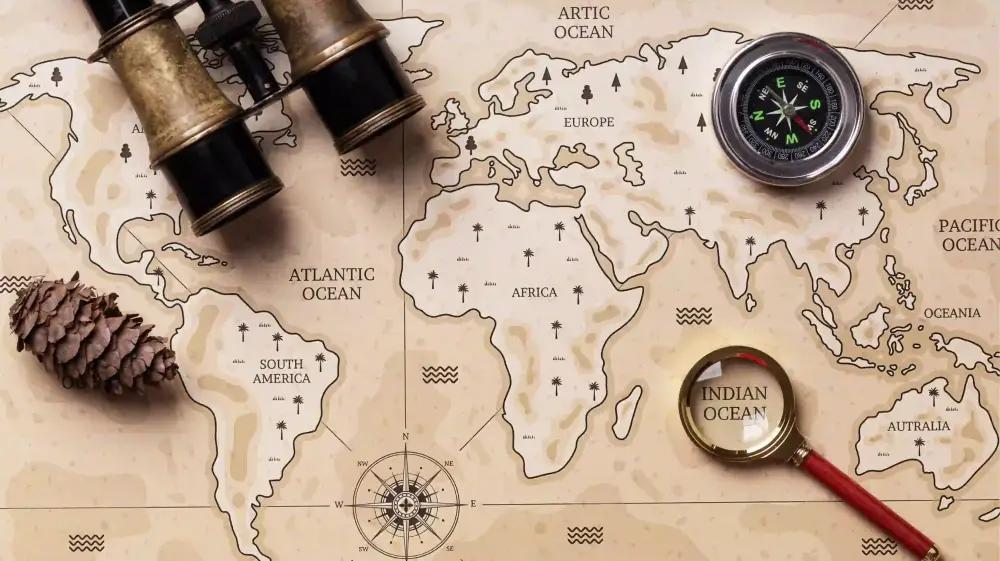Summary
Arabic localization is the process of adapting content to the audience in the Arab world. Arabic localization has many benefits and is very useful since it is the only way that guarantees that the result is convenient for the Arab culture. It also faces many challenges and only a professional can successfully handle this task.
What are localization services?
Localization services usually fall under the category of translation services, and they are the adaptation of the content from a source language to the target language while paying close attention to cultural differences and important factors that differ from one country or region to another.
Localization services include localization of translation, Arabic web localization, Arabic software localization, games, movies, captions, articles, videos, documentaries, Arabic document localization catalogs, products, electronic devices, menus, ads, slogans, packages, titles, brands, media content, Arabic audio-video localization and more. These services can be used in all fields if the person wishes to adapt the content or whatever he/she is working on. These fields include media, entertainment, IT, advertising and marketing, engineering, and more.
Get our localization services now
What does localization mean?
Localization means the process of adapting a certain content or product to the culture of another country and region to make it sound more familiar and to make the target audiences relate. Localization is the process of localizing something to make it fit into another culture and to make it well received by the target audiences by using what is appealing to them, and what makes sense to them in some specific cases. Localization does not only concern translation, but it also concerns whole products and even packages.
Get our app localization services now
When to use localization?
Localization should be used whenever a person wants to reach a wider audience, and it should be used when translating what has the purpose of expansion and more audiences. Localization should be used based on each country and region. It should be adapted to the country, language, culture, traditions, beliefs, history, practices, and many more factors. One content or product can be localized and adapted based on the number of different countries of the target audiences.
Localization is used when people wish to expand and grow by making their products travel around the world, they should make this product fit in the target country or region and it should be based on the demands and needs of the target audiences since not all audiences of different countries have the same ones. This also applies to websites and advertising and marketing content that aim at targeting more audiences.
Everything should be adapted to the culture of the target audience. Sometimes, the localizer should even make new content and use different approaches and structures that appeal to the audiences. This helps with ensuring that everything makes sense, that the contents are appealing, and that the audiences are familiar with what they are reading and using.
Get our web translation services now
What is the localization industry?
A localization industry includes the companies and agencies that offer translation and localization services for individuals and businesses who wish to tailor their products and/or contents to the needs and demands of the target audiences. These individuals or businesses usually aim at adapting their products and contents to the target markets, and this makes an increase in sales possible and it leads to the popularity of whatever was localized, in the markets and countries they were designed to make an appearance in.
This industry normally has professional localizers who know everything about the target audiences. They take into consideration factors that include cultures, beliefs, religions, history, demands, needs, orientations, preferences, and more.
Get our transcreation services now
What does Arabic localization mean?
In the Arab world, there are always differences when it comes to culture, beliefs, religion, norms, taboos, and many more. For that reason, Arabic localization is one of the most important processes if individuals or businesses wish to expand and reach the Middle East and the Arabic regions. In specific cases, contents and/or products can never be simply translated or transformed into Arabic if the localization process wasn’t used. Even products should be adapted in a way that suits Arabic audiences.
The Arabic countries are all countries that speak the Arabic language, including the United Arab Emirates, Lebanon, Iraq, Jordan, Egypt, Syria, Occupied Palestine, Bahrain, Libya, Kuwait, Morocco, Sudan, Tunisia, Saudi Arabia, Algeria, and more. These countries usually have specific cultures and religions that are integral parts of their governments, needs, and demands. That is why, nearly all contents and products should be localized in a way that fits in these countries, suits them, makes sense to them, and is acceptable.
Get our game translation services now
What is an Arabic localization example?
The Arabic localization process includes nearly everything. Whether it be a product, content, service, or anything else. A perfect example of Arabic localization is the remaking of a movie or a series in the Arabic language. And remaking means translating the scenario, adapting it to the Arabic society and culture, and creating it from scratch in terms of acting. A perfect movie or series that is translated and created in the Arabic language, should be first of all considerate of the culture, religions, beliefs, norms, taboo topics and terms, specific situations and scenes, names of the characters, and more.
This is the only way a movie or a series is perfectly translated, adapted, and localized and can be accepted in Arab cultures and regions. Not to mention that each Arab country has its own factors and characteristics that are different from others. Some Arab countries differ in terms of religion, allowances, rules, laws, costumes and clothing, and even the food they eat.
For that reason, it is not always possible that a movie or a series to be localized in a way that fits all Arab countries and cultures. Everything should be adapted to the different Arab cultures and to what is accepted and what is forbidden. Plus, each country has its own Arabic dialect, and it is sometimes hard for other Arab countries to understand. However, there is a commonly written Arabic dialect that is used by all Arabic countries, and it is the Modern Standard Arabic.
Why Localization Is Important in Business Strategy
What is the purpose of Arabic localization?
The purpose of Arabic localization is to reach Arabic audiences while minimizing and/or avoiding all local sensitivities. The Arabic language is the 4th most spoken language in the world, which makes it among the 5 most spoken languages in the world, with around 422 million speakers that include both native and non-native speakers in the Arab world and the Arab diaspora.
Consequently, Arabic localization is necessary if the aim is at reaching wider audiences. There are 22 members in the Arab League, which means that reaching the Arab-speaking countries will definitely raise the audiences that are reached. Plus, most of the time, Arabic localization is required or else the products or the contents won’t make any special appearance, and in some cases, they can be banned and restricted.
Therefore, Arabic translation and localization go hand in hand. Everything should be adapted and suitable for Arab audiences and markets. Otherwise, products and contents will not only be unaccepted but they will also not be considered and they won’t be a success.
Going Global: A Complete Guide to Localization in Translation
Unraveling the Linguistic Enigma: Why Is Arabic Language Hard to Learn?
What is the difference between Arabization and localization?
While localization means the process of adapting content and/or products to the target country’s culture, Arabization means the localization of content and/or product to the Arab countries and regions. It is preferred that Arabization is done by Arab natives who closely and thoroughly know everything about different Arab countries, cultures, beliefs, religions, practices, and all other factors that play a major part in the adaptation process. A non-speaker might not get everything right and might make mistakes that lead to drastic consequences. For that reason, Arabs are the perfect candidates who can successfully complete the Arabization process.
Unlocking the Path to Certification: Becoming a Translator in the UAE
What are the benefits of Arabic localization?
You can’t translate anything into Arabic or make it for Arabic audiences without having it localized. The benefits of Arabic localization are many, and they include:
- More Arabic audiences. By localizing the Arabic contents and/or products, they will appeal to more Arabic audiences who will relate to them. The better it is localized, the higher the chances of reaching audiences in different countries.
- Increasing the chances of accepting the content and/or product. The localized contents and/or products are easily and quickly accepted by the markets first, and they are then accepted by clients and customers.
- More sales. More audiences and more acceptance of the products and contents will definitely increase sales since more Arabs are feeling concerned and are able to relate to what they are offered.
- Reach for the 4th most spoken language in the world. The Arab world is becoming a very expanded and large society as the days go by. Therefore, localizing the contents and/or products will be marking the audiences of the 4th most spoken language in the world.
- Increased chances of being known. If what is localized aims at being more popular, then Arabic localization is a necessity since everything that isn’t localized and adapted to the Arab audiences won’t make sense.
- Spreading awareness. Even when localized, awareness can still be spread. By making the content localized, more awareness will be raised about topics and subjects that aren’t usually tackled in the Arab world.
Get our translation and writing services now
What are the Arabic localization challenges?
Arabic localization can be considered one of the toughest localization processes since it usually takes a native Arabic speaker to successfully complete this task or someone who has a deep knowledge of the different Arab countries and cultures.
However, there are always challenges when it comes to Arabic localization, that includes:
- Translation of scientific books and terms. The Arabic language doesn’t have scientific terms and references as much as foreign languages have. This means that some terms might be hard to find, if not impossible, and the equivalents can sound weird and unfamiliar.
- Unification of terminologies. Arab countries all have different terminologies that are usually based on the country’s culture, religion, beliefs, and other factors. This means that some might find it hard to use the right terminologies in specific Arab countries.
- Different Arabic dialects. Each Arab country has its own dialect. Each country has its own dialect that other Arab countries aren’t familiar with. This usually causes problems while choosing the right words and even structures. This makes it possible for native speakers only to localize the contents.
- Different languages and dialects in the same country. Arab students usually study all the materials in French, English, or Arabic which means the Modern Standard Arabic which is the unified written Arabic of all Arab countries. That is why native speakers themselves might find it difficult to localize the contents since many dialects and languages are spoken within the same country.
- Religious factors are an integral part of the rules and restrictions in some countries. The Arab world is known for its religious aspect and sects that not only differ from one country to another but from one city to another one within the same country. This means that Arabic localization should be completed in a way that suits cities of the same country.
- The dominance of the English and French languages. These two languages are dominant in all Arab countries, which makes Arabic speakers not familiar with their own terminologies at times. This means that to complete Arabic localization, the localizer should be well informed of all words that are used in English and/or French and not in Arabic. Some Arabic words might not be familiar to native Arabic speakers themselves.
The Road to Professional Translation: Translation Methods
Who are the localizers of the Arabic languages?
It usually takes native Arabic speakers to localize the Arabic language, because they are the ones who know everything about the culture, beliefs, religions, norms, needs, demands, sensitive topics and terminologies, what is acceptable and what is not, and what should be taken into consideration. Non-native speakers can localize the Arabic language, however, they should be well-informed and should pay close attention to all details. For that reason, localizers of the Arabic language should typically be native speakers of the Arabic language. They should be translators who know all about conveying the meaning in the right way, and they should definitely be well aware of all challenges of the Arabic languages and culture and know how to deal with them.
Get a quote now and let our translators bridge the gap between languages!






